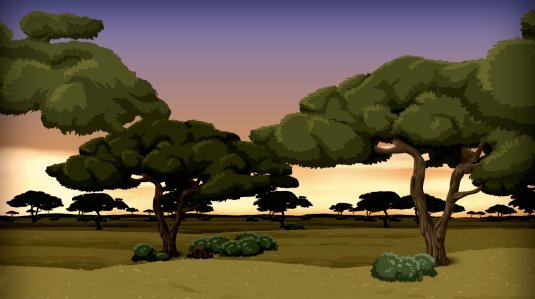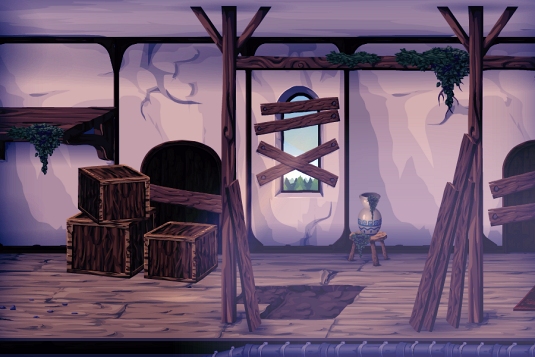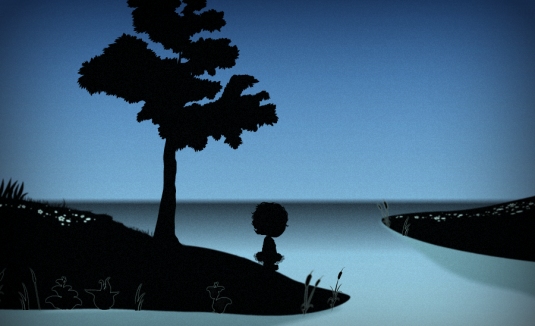
When Tiny Speck announced that it was closing its weird and beautiful browser MMO, Glitch, studio founder Stuart Butterfield famously blamed it at least in part on the game’s lack of guidance — there just wasn’t enough hand-holding. “A lot of people were just like, ‘I don’t know what the fuck I’m supposed to do,'” he lamented. “Some people took ‘I don’t know what I’m supposed to do’ as an invitation to explore and ended up loving it. Other people closed the browser. That’s it.”
I know, right? There was crafting and housing and exploring and questing and socializing and achieving and even dynamic events, sure, but what are we to do??
I dropped stuff.
See, Glitch allows — allowed — players to join multiple guild-like “groups,” coming and going at will. There were groups for religions, groups for exiles from other games, groups for sexual preference, groups for scenes, groups for trading, groups for routes, groups for pretty much everything. And then there was the group called We Drop Stuff. These 400 or so players made it their goal in the game to hide cool and valuable objects all over the gameworld, preferably in “blind spots” way up high on tree ledges and hidden behind nooks and crannies and logs and stones where only die-hard explorers might find them. It was geocaching without maps, GPS, or any sense of permanence. “We Drop Stuff is for all the treasure hunters out there,” read the group mission statement. The participants even maintained a list of the best secret spots to help each other hide away goodies.
There was no reward for doing this — no tangible one, anyway. The reward was in knowing that someone, somewhen was going to stumble into your present and take it home and love it or eat it or display it or maybe even leave it for the next Glitchen to discover. I loved being the beneficiary of these little caches. One time, long before the housing changes, I bought a small house that had been previously owned. To my surprise, it came packed with dozens of bags full of items, including approximately 10,000 pieces of ginger, worth more than I paid for the house itself. I’m not sure what the previous owner was going to do with all of that ginger, but getting all the free stuff so unexpectedly was a treat. In We Drop Stuff, I could give that feeling to so many people and have fun doing it.
My little Glitchen specialized in teleportation scripts. If you played around with runes and recall spells in Ultima Online, you’ll grok TP scripts immediately. With enough skill invested, you could take paper (harvested from a tree, naturally), go to a location, and scribe a teleportation script. When used, the script would teleport the user to the location where it had been scribed and be consumed in the process. I went to all the most imaginative and little-known streets I could find and inscribed dozens of scrolls to take with me on my dropping escapades; I figured anyone so invested in exploration that he’d find my scroll would be doubly tickled to find that it led to yet another hidden place to explore.
In the process, I treated myself to a tour of so much of the world Tiny Speck built for us. In fact, for a few weeks last spring, I became infatuated with snapping screenshots of ruined buildings in the game. Why were there ruined buildings in a video game? I have no idea. Because the art designer said so. The pure uselessness of these pieces of hidden art just spoke to me. Someone paid someone to draw a secret, lost world inside a Flash-based video game and code it for me to walk past and ponder.
On second thought, this does explain a bit about why the game wasn’t a financial success.

I didn’t realize it at the time, but We Drop Stuff is what Glitch was all about. Not dropping stuff, specifically, but doing something your own way, carving out your own fun, making someone else’s day, even contributing to a community without being overtly social. You could certainly play Glitch as a traditional MMO, living in a house, harvesting resources, crafting consumables, selling high on the market, defending the world from Rook attacks. But in doing so, you’d have missed out on the unique bits that Glitch had to offer. Heck, in most modern MMOs, you can’t drop stuff at all. That’s how little the worlds respond to your presence.
Think about that for a moment.
I don’t want to play games like that anymore.
There are lots of reasons Glitch is closing down, mostly related to marketing and platform issues and things not directly related to gamers’ inability to puzzle out for themselves “what the fuck to do.” But a dearth of creativity isn’t one of them. I cling to the game’s memory as its life fades away because this is a game the industry needs to learn from, its failures as much as its successes. It would never have been a World of Warcraft, but it was something traditional combat grinders are not: It was a toy of wonder, not a violent slot machine. And a good sandbox MMORPG must be both.
My deep regret is that these lessons come ever more frequently at the cost of the best games in the genre.

It reminds me of something I wanted to do in Neverwinter Nights but because items on the ground got deleted when everyone left the area I needed a help of a DM. Then there was a server made by one insane guy alone who developed a way to place furniture in the areas you owned. People would craft the furniture and then place it in their homes and the owners of a town could do the same in the common areas such as the square. I’m not sure what’s the current state but the guy was working on a way of creating whole locations such as buildings while in game which is insane because in most games you have to use the editor, shut down the server and then you can update the files.
What I’m trying to say is that we’re making baby steps when it comes to detailed sandbox elements. The inefficiency could be solved by money (more staff, more computing power) but there are just too many games with lower barrier of entry. What gives me hope is the boom of Kickstarter and crowdsourcing in general in combination with the evolution of pricing – indie developers can create small games, distribute them online and sell them for the price they want. Also pre-purchasing the game for beta access is great.
I have faith that if the creators of Glitch found a better platform for their game than flash, went to Kickstarter and set up a wide array of stretch goals they would be able to resurrect the game is some form. Already we see a return of single player roguelike games so I hope so see some good sandbox games pop up and if we’re lucky they will grow enough to support the development of multi player. I didn’t get to play Glitch because there were other games I wanted to play first so I hope that in the future fewer players have similar “problem” :).